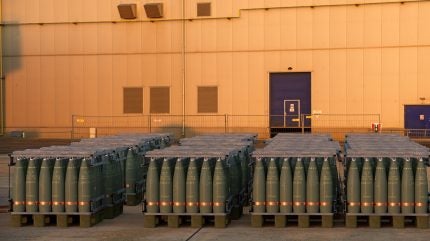Rheinmetall opens ammunition factory in Unterluess, Germany

Germany-based defence contractor Rheinmetall has inaugurated an advanced artillery ammunition production facility in Unterluess, Lower Saxony.
The construction of facility commenced in February 2024, with an investment of nearly €500m ($585.35m).

Discover B2B Marketing That Performs
Combine business intelligence and editorial excellence to reach engaged professionals across 36 leading media platforms.
Find out more
The facility comprises two structures: one dedicated to the production of 155mm artillery shells and the other for the loading, assembly, and packaging processes, reported Bloomberg.
Trial operations were initiated at the factory in the second quarter of 2025.
Speaking at Rheinmetall artillery plant inauguration, Nato Secretary General Mark Rutte said: “When it comes to ammunition, this factory alone plans to produce as Armin said, 350,000 artillery shells a year.
“This will come on top of what other Rheinmetall plants are producing.
“This year, your plants in Germany, in Spain, in Hungary – and by the way also South Africa and Australia – aim to churn out 700,000 rounds of artillery ammunition.”
Rutte pointed out that existing production lines across the alliance have been expanded and several new ones have also been opened.
“Today, Europe’s annual capacity to produce artillery ammunition is six times bigger than just two years ago.
“It is expected to reach two million rounds by the end of this year, and Rheinmetall accounts for a big part of this growth,
“Now we need to see similar efforts to increase the production of more complex capabilities, like tanks and air defence systems and missiles,” Rutte added.
In the first half of fiscal 2025, the Rheinmetall Weapon and Ammunition sector recorded sales of €1.323bn, marking an all-time high.
This surge in revenue was propelled by demand for tank ammunition and a series of orders for medium-calibre ammunition and artillery from Nato member states and Ukraine, stated the company.
Notably, substantial contracts for 155mm artillery ammunition placed by European Nato countries contributed significantly to the growth during this period, it added.


